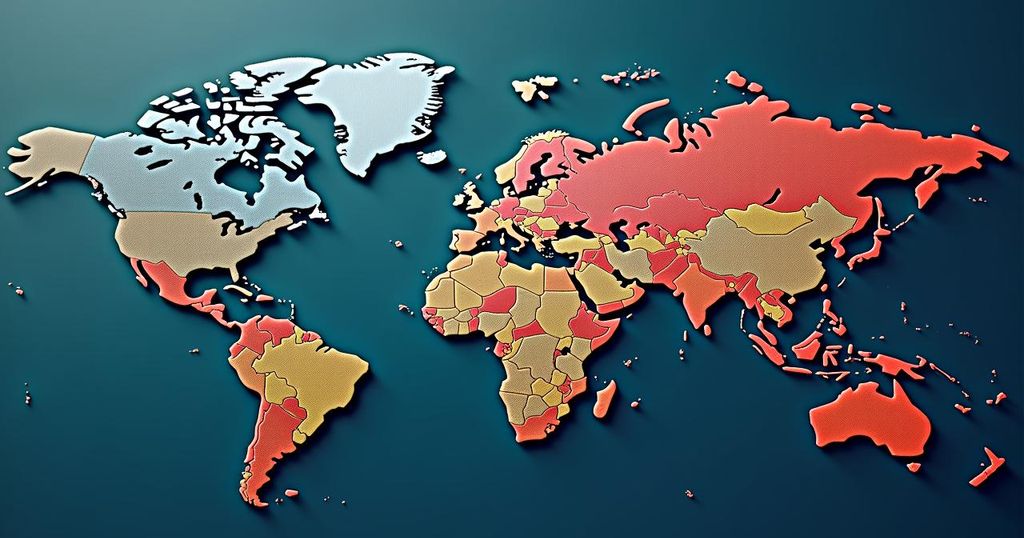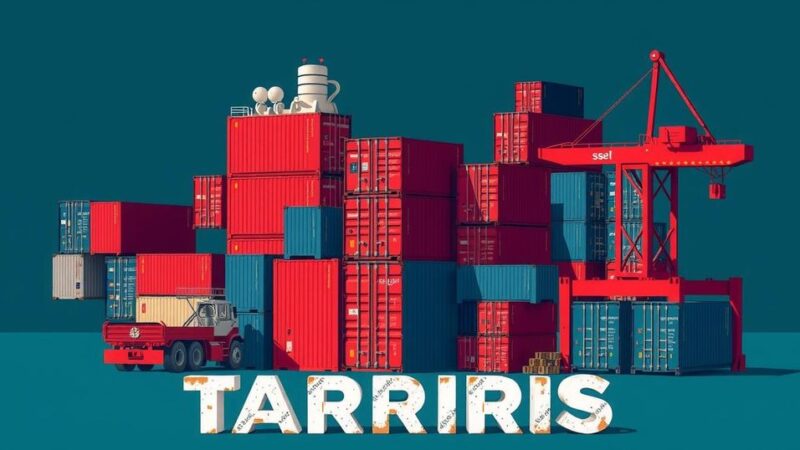In a recent interview, former President Donald Trump proposed renegotiating international trade agreements, emphasizing unfair treatment by Mexico, China, Canada, and the European Union. He advocates for revising the USMCA and implementing high tariffs on Chinese automotive imports from Mexico to stimulate domestic job growth and strengthen the auto industry.
Former President Donald Trump has made it abundantly clear that renegotiating international trade agreements is at the forefront of his agenda should he reclaim the presidency in November. During an interview on “Sunday Morning Futures,” Trump expressed his belief that the United States has been unfairly treated in trade dealings with Mexico, China, Canada, and the European Union, stating, “We have been screwed by Mexico and by China and by Canada and by the European Union.” He emphasized his unique approach to trade negotiations, illustrating his experience as a successful businessman, saying, “I got a clause that gives me the right to re-negotiate [the USMCA]. Who else would think of that except a business person? A good one — I’m a really good business person.” Trump’s proposal includes restructuring the United States-Mexico-Canada Agreement (USMCA) as part of a broader initiative aimed at bolstering domestic job creation and revitalizing the American auto industry. Additionally, Trump has outlined plans to introduce a 200% tariff on all Chinese automotive imports from Mexico to make such products “un-sellable” in the United States. This directive arises from the growing significance of Mexico in the U.S. automotive parts market, which has seen its share increase from 38% in 2017 to 42.5% in 2023 according to reports from various Latin American business news outlets. Elaborating on his intended approach, Trump insisted on incorporating a clause into trade agreements to allow for ongoing evaluation and renegotiation, stating, “I want to take advantage now of the car industry… This is the way it is. Either you do that, or I am not going to make a deal, or… I did not mind not making a deal.” He further criticized the North American Free Trade Agreement (NAFTA), describing it as “the worst deal” and highlighting numerous errors and oversights that had persisted for decades without correction. Trump’s previous trade achievements during his time in office were also recounted, including successful agreements with Japan and South Korea. Referring to these accomplishments, he noted, “When I left, Iran was broke,” underlining the consequences of his strict measures against various nations.
The context of this article revolves around the ongoing discourse regarding international trade and its impact on the American economy. Prior to and during his presidency, Donald Trump adopted a protective trade stance, frequently criticizing previous agreements like NAFTA (North American Free Trade Agreement) and advocating for renegotiations to secure better terms for the United States. His perspective has garnered significant attention as he campaigns for another presidential term, focusing particularly on the automotive industry which is crucial for many American workers.
In summary, the former President outlines a comprehensive vision for re-negotiating trade agreements to favor American interests, particularly in the automotive sector. His strong assertions about being “screwed” by other nations and determination to secure better deals highlight his business-oriented approach to governance. As he campaigns for the upcoming election, these trade policies remain a central theme.
Original Source: www.foxnews.com






